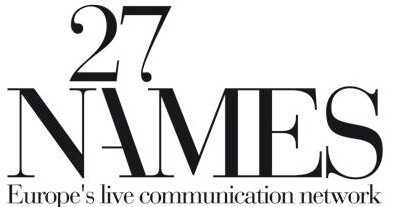Luis Macera is the content supervisor at beon. event division. This interview highlights the importance of having a complete perspective of every event, feel the audience and thus, boost the participants’ experience.
The script layout is a key element in any event. Which basic principles do you usually follow to elabotate it?
Indeed, the elaboration of the script layout is crucial. To me, it reflects the construction of the event itself. I spend several hours just for the first draft, though may be more depending on the complexity of the project. Then, it will follow several versions of the content layouts, a process that may take from several weeks to whole months, depending on the pre-production phase of the event.
There is a great amount of things to be considered, and above anything, the timing. Timing is fundamental. If the script layout indicates that the event ends in a given hour, all the participants (caterings, transfers, etc.), must have accomplish their duties by that time. We must be extra careful in that sense.
Another crucial and very complex element in events that requires of a detailed layout is the technical part. The technical and audiovisual crews, most of the times conformed by at least a dozen professionals, is left in the dark without a well-planned rider.
How important is the stage management in events?
Stage management is an experience similar to that of conducting an orchestra, extremely important to the success of the final performance. But an event does not work properly if every element is not working by itself or in combination. If there are sound flaws, for example, the result will never be optimal. Stage managers must know how to conduct a symphony to perfection, but he also must be acquainted with every musician, and fathom them as a performing unit. These are the things essential to our job.
Are clients aware of the value of this type of work? It is perceived as a key to success?
Normally, yes. Personally I love to be in contact with our clients: advise them, talk to the event speakers, or recommend the best mise-en-scène. I never confine myself in the control room, but rather connect with the client, something they value a lot.
It is stage management a specialization that evolves and leaves room for innovation?
It is constantly evolving. As almost anything these days, stage management requires of a continuous technical updating, and shifting your work methods. Years ago, I remember going to a live event with hundreds of tapes and a VTR rack to play video images. This changed drastically after the digitalization era started. Nowadays, big events require a much more complex stage management as the options have increased considerably due to the amazing possibilities offered by video wall processors, WATCHOUT or D3 multiple mapped areas. All these new tools allow event professionals to amaze their audience.
Tell us something about the main skills a professional of this field should manage.
I would highlight these three, specifically: self-control, empathy to kindly and effectively communicate with big, multidisciplinary teams and, above all, this professional must have a holistic vision of the event. It is very important to go beyond the technical performance, to be intuitive about how a live shows breathes, and by feeling it, maximize the experience.


